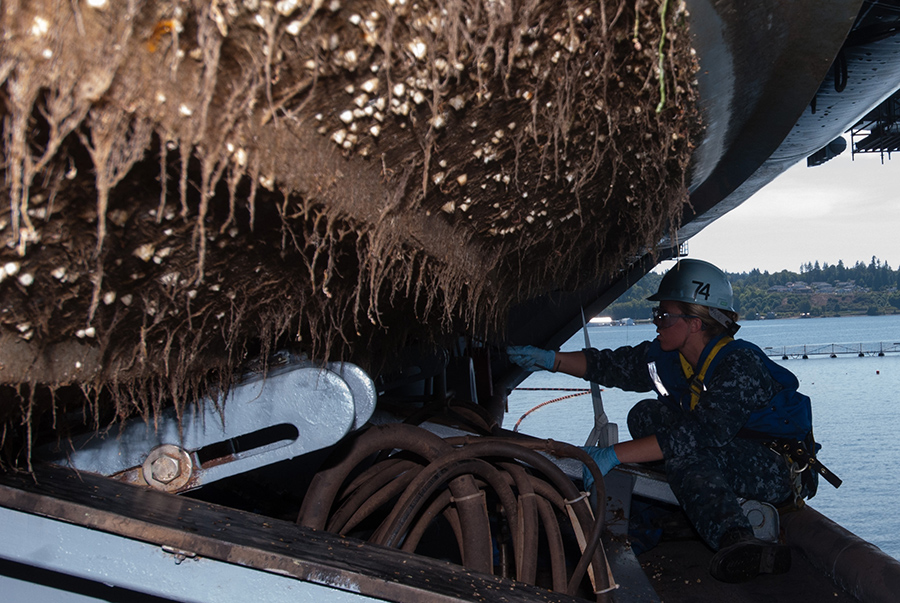Ship Hull Coating to Prevent Marine Fouling
- Patent Pending
Marine fouling costs the shipping industry billions of dollars each year. This tough glass-like coating provides long-lasting protection, unlike potentially toxic gel-like alternatives.
Problem
On ships and in ports around the world, plants, algae, and marine animals such as barnacles find homes on whatever surfaces they can reach, a problem that costs the shipping industry billions of dollars each year. Known as “marine fouling,” these organisms are adapted to living on all manner of surfaces. Marine fouling accumulated on a ship’s hull can increase drag so much that a captain must use up to double the typical amount of fuel to move a ship through the water. Various antifouling coatings already exist, but many of these release toxic chemicals into water that can harm marine organisms. These materials are soft and gel-like, quickly degrading in harsh marine environments.
Solution
This tough coating, a blend of positively and negatively charged polymers called “zwiterglass”, is easily sprayed onto surfaces using water instead of volatile organic solvents. The surface is glassy and hard, with increased durability that provides long-lasting protection against the wear and tear of a marine environment. The high water content of the material prevents waterborne animals from latching onto it they way they would a rock or piece of metal.
- Easy spray-on application
- Long-lasting protection
- Environmentally friendly
- Reduce drag and fuel consumption
Applications
- Shipping Industry
- Naval Ships
- Civilian Watercraft
- Docks and Buoys

